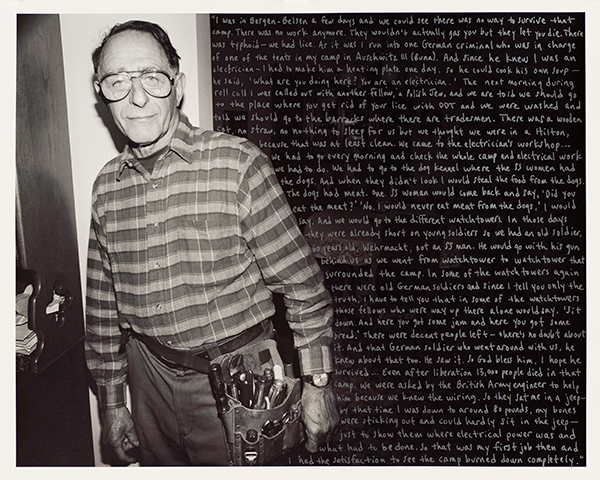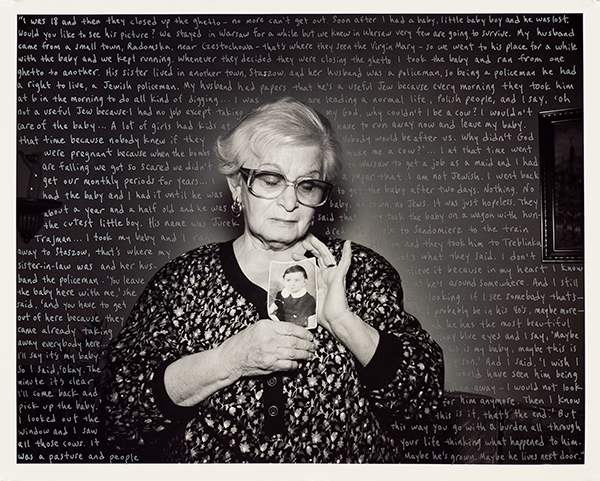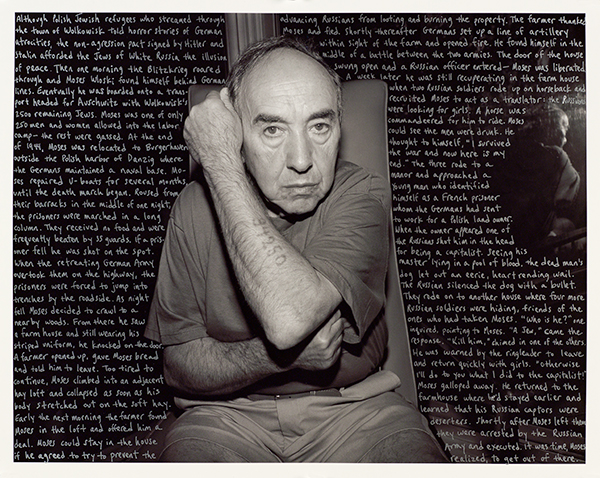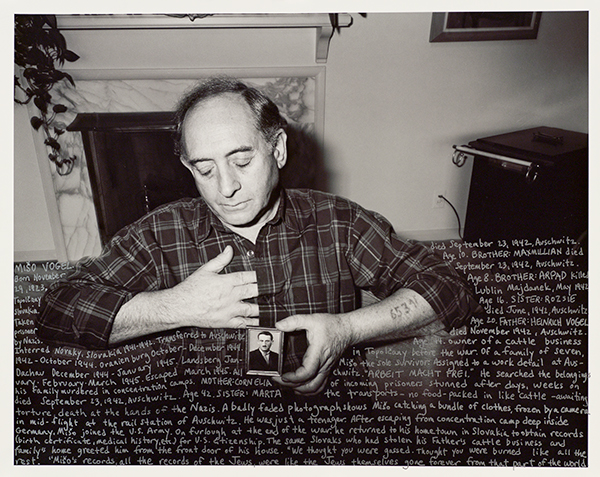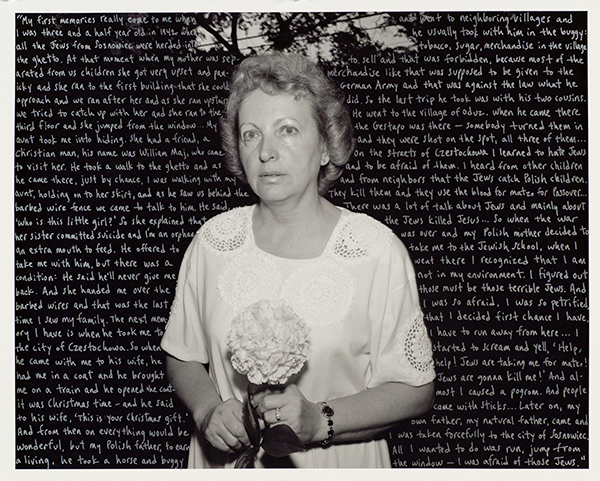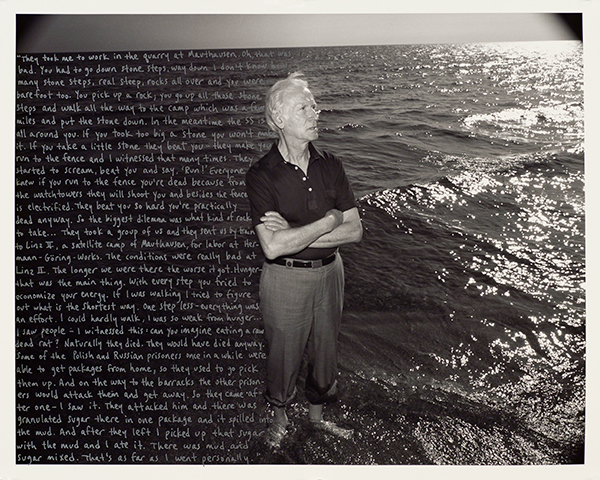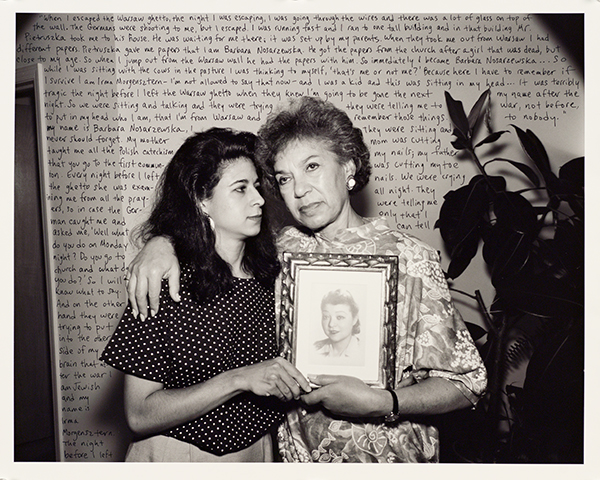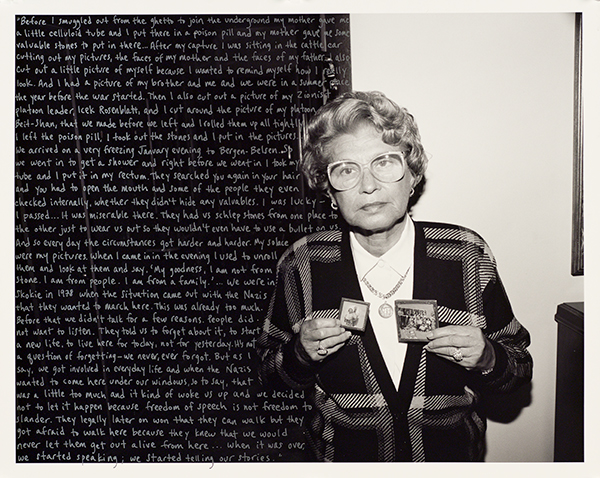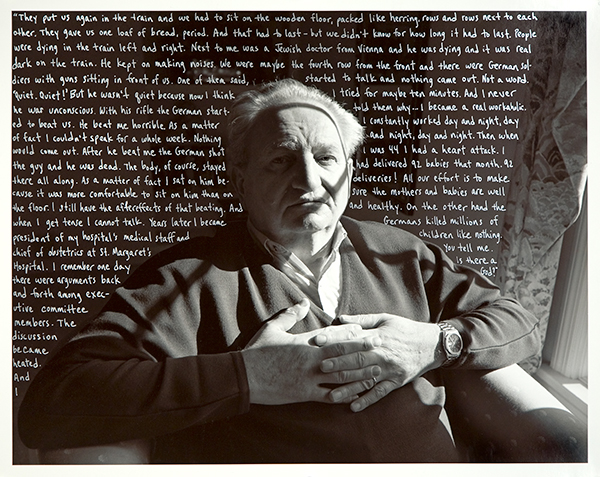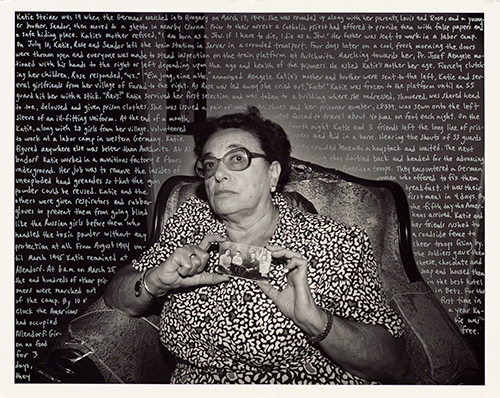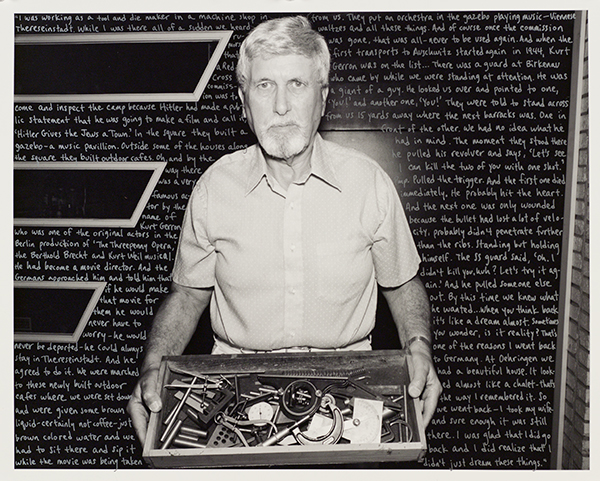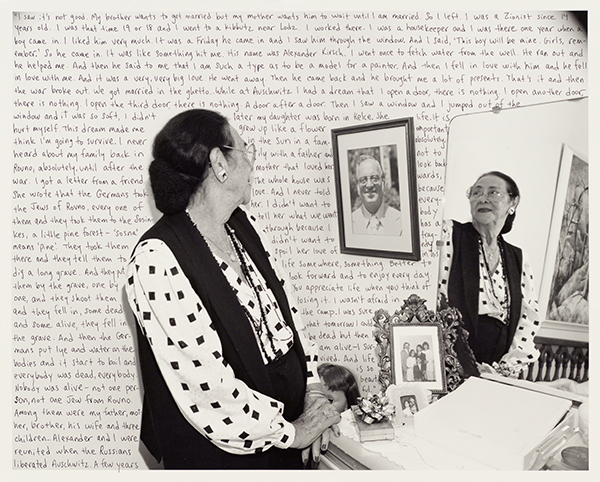Moses Wloski
Although Polish Jewish refugees who streamed through the town of Wolkowisk told horror stories of German atrocities, the Non-Aggression Pact signed by Hitler and Stalin afforded the Jews of White Russia the illusion of peace. Then one morning the Blitzkrieg roared through and Moses Wloski found himself behind German lines. Eventually he was boarded onto a transport headed for Auschwitz with Wolkowisk’s 2500 remaining Jews. Moses was one of only 250 men and women allowed into the labor camp. The rest were gassed.
At the end of 1944, Moses was relocated from Auschwitz to Burgerhaven, outside the Polish harbor of Danzig, where the Third Reich maintained a naval base. Moses repaired U-boats for several months. And then the death march began. Roused from their barracks in the middle of one night the prisoners were marched in a long column. They received no food and were frequently beaten by SS guards. If a prisoner fell he was shot on the spot. Hundreds perished.
When the retreating German Army overtook them on the highway, the prisoners were forced to yield, jumping into trenches by the roadside. As night fell, Moses decided to crawl to a nearby woods. From there he saw a farmhouse and although still dressed in his striped prison uniform, he knocked on the door. A farmer opened up, gave Moses bread but fearing for his own life, asked Moses to leave. Too tired to continue, Moses climbed into the adjacent hay loft and collapsed as soon as his body stretched out on the soft hay.
Early next morning the farmer found Moses in the loft and offered him a deal. Moses could stay in the house if he agreed to try to prevent the advancing Russian soldiers from looting and burning the property. The man thanked Moses and fled. Shortly thereafter Germans set up a line of artillery within sight of the farm and opened fire. He found himself in the middle of a battle between the 2 armies. The door of the house suddenly swung open and a Russian officer entered; Moses was liberated. A week later he was still recuperating in the farm house when 2 Russian soldiers rode up on horseback and recruited Moses to act as a translator. The Russians were looking for girls. A horse was commandeered for him to ride. Moses could see the men were drunk; he thought to himself, “I survived the war and now here is my end.”
The three rode to a manor and approached a young man who identified himself as a French prisoner whom the Germans had sent to work for a local Polish land owner. When the owner appeared one of the Russians shot him in the head for being a capitalist. Seeing his master lying in a pool of blood the dead man’s dog let out an eerie, heartrending wail. The Russian silenced the dog with a bullet .
They rode on to another house where 4 more Russian soldiers were hiding, friends of the ones who had taken Moses. “Who is he?” one inquired pointing to Moses. “A Jew,” came the response. “Kill him,” chimed in one of the others. He was then warned by the ringleader to leave and return quickly with girls. “Otherwise I’ll do to you what I did to the land owner.”
Moses galloped away. He returned to the farmhouse where he had been staying and learned that his Russian captors were deserters. Shortly after Moses left them they were arrested by the Russian Army and executed. It was time, Moses realized, to get out of there.

